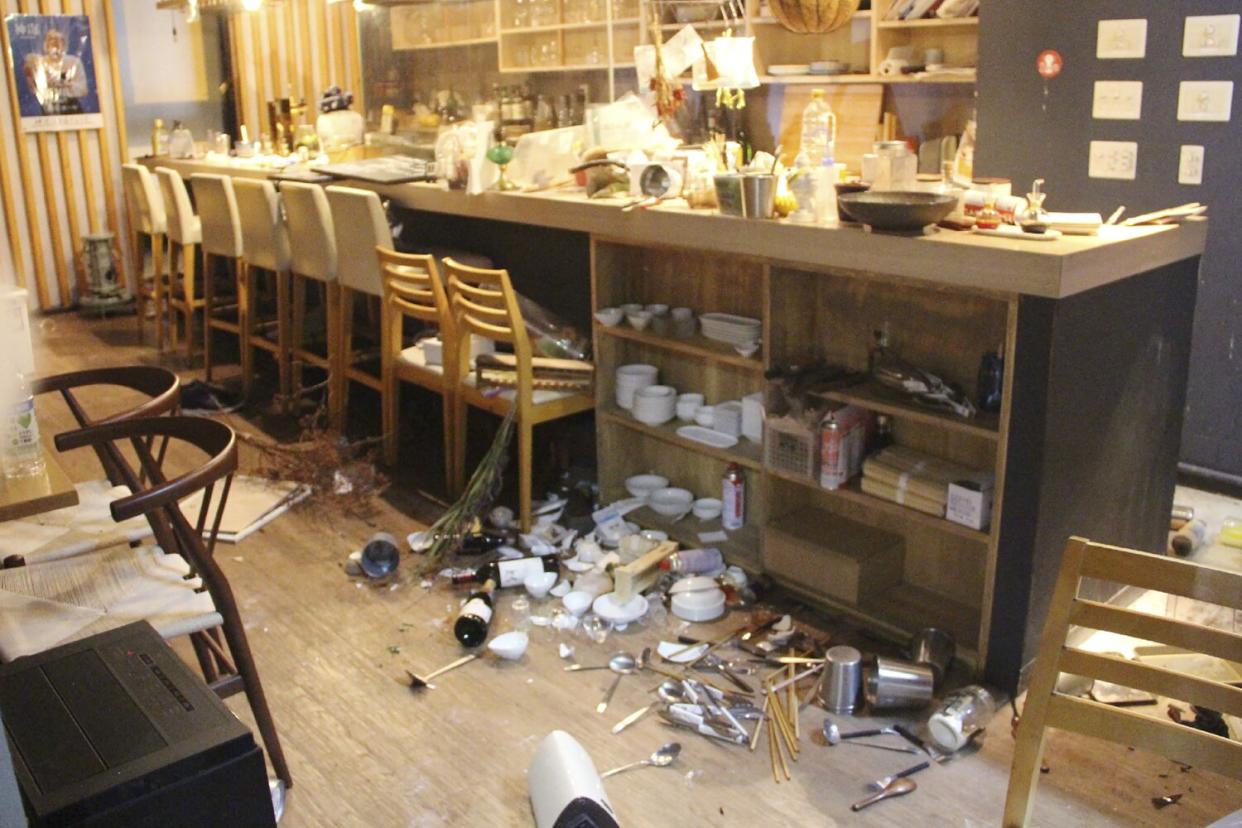Tsunami Alert Issued After 7.3 Magnitude Earthquake Hits Japan Near Site of 2011 Nuclear Meltdown

STR/JIJI PRESS/AFP via Getty
An earthquake struck off the coast of northern Japan on Wednesday night, activating a tsunami warning for the country 11 years after it faced a quake and resulting wave that left thousands dead.
According to the Associated Press, Wednesday's 7.3 magnitude quake triggered blackouts affecting over 2 million buildings in the region, and footage posted to social media showed violent shaking around the country.
The epicenter of Wednesday's quake is located 55 miles from the 9.0 earthquake that caused a massive tsunami in 2011, CNN reported.
The 2011 disaster killed nearly 16,000 people, according to some estimates, and caused a nuclear accident when water from the tsunami disabled the power supply that cooled reactors at the Fukushima Daiichi nuclear plant in Fukushima. It is considered the worst nuclear incident since 1986's Chernobyl disaster in Ukraine (in the former Soviet Union).
One of the nuclear power plants located in Fukushima is being checked while a second one was unaffected by the tremors, Chief Cabinet Secretary Hirokazu Matsuno told reporters, according to CNN.
"Please first take action to save your life first," Prime Minister of Japan Fumio Kishida told residents in a translated tweet. "Please collect information on TV, radio, and disaster prevention information on the Internet."
RELATED: Nearly 400 Dead in Indonesia After Earthquakes Trigger Devastating Tsunami
Reuters reported that the Japan Meteorological Agency issued an advisory across northern Japan for a tsunami as high as three feet. After the quake, the Japan Meteorological Agency kept their tsunami warning level low, while the Pacific Tsunami Warning Center said there was no longer a threat, according to AP.
Authorities warned that the Fukushima, Miyagi and Yamagata prefectures could experience aftershocks.
RELATED: 8.2 Magnitude Earthquake Off Alaskan Coast Is 'Strongest' in Nearly 60 Years, Officials Say
On Twitter, seismologist Dr. Lucy Jones said Wednesday's quake could be considered an aftershock of the one that caused the 2011 tsunami.
"Today's M7.3 is the world's first [more than 7 magnitude quake] of 2022. Located off the coast of Japan at a depth of ~60km," she wrote. "I would call it an aftershock to 2011, but some seismologists might disagree. Aftershock is a semantic term to describe [the] relationship between quakes."
RELATED VIDEO: Terrifying Footage and Photos From Alaska Earthquakes Show Decimated Roads, Buildings
Jones explained that an aftershock is a "semantic term used for smaller earthquakes that follow a big event nearby in time and space," adding that Wednesday's quake was smaller than 2011's, and occurred around the edge of its location.
"An event is an aftershock as long as the rate at which earthquakes are occurring is higher than it was before the mainshock," she said. "For great earthquakes, this can be decades or more."

